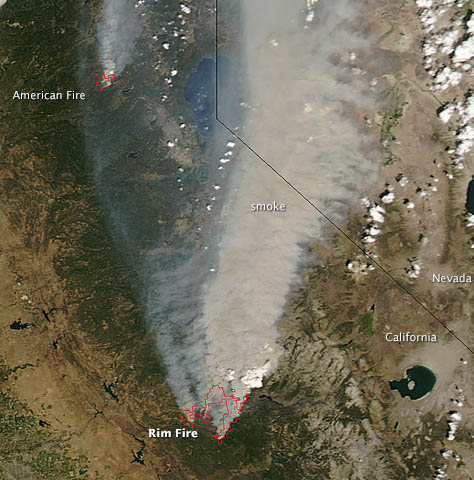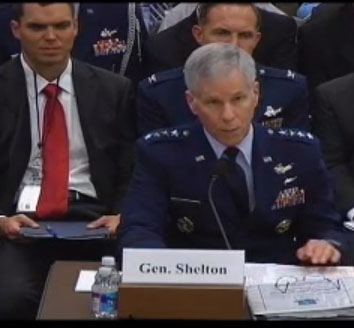 Alaska Lieutenant Governor Mead Treadwell
Alaska Lieutenant Governor Mead TreadwellThree key associations of state officials are recommending that states pass legislation banning the use of unmanned aerial vehicles (UAVs) for surveillance unless the person being tracked has given permission or a warrant has been issued.
The associations also recommended banning UAVs from carrying weapons and emphasizing in state laws that both UAVs and their smaller cousins, model aircraft, be operated in ways that do not “present a nuisance to people or property.”
Three key associations of state officials are recommending that states pass legislation banning the use of unmanned aerial vehicles (UAVs) for surveillance unless the person being tracked has given permission or a warrant has been issued.
The associations also recommended banning UAVs from carrying weapons and emphasizing in state laws that both UAVs and their smaller cousins, model aircraft, be operated in ways that do not “present a nuisance to people or property.”
“Because this technology can use a variety of sensors, and some can potentially loiter for long periods of time without detection, there is concern that government can use these systems to monitor individuals in a way that was not imaged in the Supreme Court 4th Amendment rulings based on the presumption of privacy,” the associations said in a prepared statement.
The prohibition against tracking goes beyond just watching where someone goes, Alaska Lieutenant Governor Mead Treadwell told reporters at the Association for Unmanned Vehicle Systems International (AUVSI Unmanned Systems 2013) conference in Washington on Tuesday (August 13, 2013).
“I think in this instance we’re talking not just about the optical collection of data but collection of data say from picking up WiFi signals or picking up telephone signals and that sort of thing,” said Treadwell, who chairs one of the three groups, the Aerospace States Association (ASA). “One of the unique and new characteristics of UAV technology is its capability for persistence — and with persistence you can . . . collect lots of information. Though if you are collecting it about an individual without their consent, we are saying you need a warrant.”
The recommendations were crafted in response to public demands that limits be placed on UAVs because of concerns over potential privacy abuses. The outcry has spurred more than 30 states to consider bills limiting the use of UAVs and, as of June, and at least nine have passed legislation, according the National Conference of State Legislatures (NCSL).
The NCSL, which worked on the recommendations, is made up of members of the state houses of representatives. They worked with the ASA and the Council of State Governments, which represents the senate side of state legislatures. ASA, whose members are lieutenant governors from states where aerospace is a key economic element, bring states’ executive branch to the table. Having input from all three branches of state government is likely to improve the chances that the suggested measures will be adopted.
AUVSI, which counts much of the UAV industry among its members, weighed in on the recommendations as well, as did organizations focused on privacy including the American Civil Liberties Union, the Electronic Privacy Information Center, and the Electronic Frontier Foundation. Law enforcement provided its views as well through the Airborne Law Enforcement Association, the National Sheriff’s Association (NSA), and the International Association of Chiefs of Police.
Privacy concerns are credited with sharply delaying efforts by the Federal Aviation Administration to integrate unmanned systems into the national airspace – a step essential to commercial UAV operations that AUVSI says have the potential to create over 100,000 high-paying jobs by 2025.
“The FAA is not the agency to address privacy,” said Maj. Gen. James O. Poss (ret), who asserted that the aviation agency should not be distracted from their vital work.”
Poss, who commanded the 609th Air Intelligence Group at Shaw AFB, South Carolina, and 70th Intelligence Wing at Fort George G. Meade, Maryland, is now the director of strategic initiatives at Mississippi State University. MSU is leading a coalition of 10 schools that are also looking at the privacy issue.





